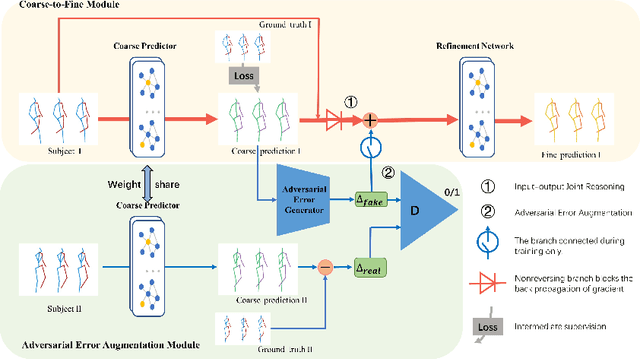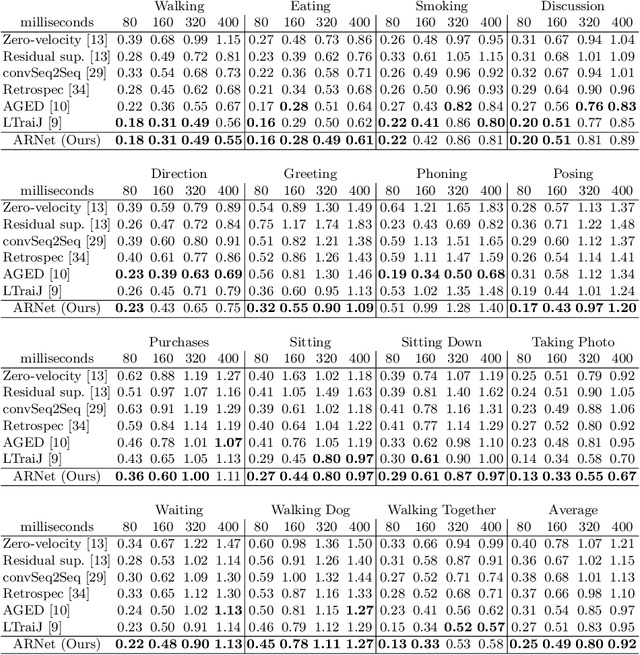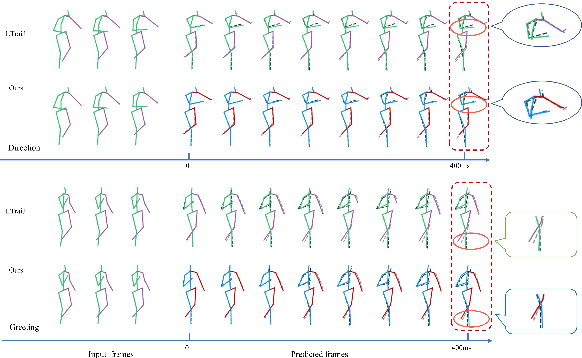Xianjin Chao
Adversarial Refinement Network for Human Motion Prediction
Nov 24, 2020



Abstract:Human motion prediction aims to predict future 3D skeletal sequences by giving a limited human motion as inputs. Two popular methods, recurrent neural networks and feed-forward deep networks, are able to predict rough motion trend, but motion details such as limb movement may be lost. To predict more accurate future human motion, we propose an Adversarial Refinement Network (ARNet) following a simple yet effective coarse-to-fine mechanism with novel adversarial error augmentation. Specifically, we take both the historical motion sequences and coarse prediction as input of our cascaded refinement network to predict refined human motion and strengthen the refinement network with adversarial error augmentation. During training, we deliberately introduce the error distribution by learning through the adversarial mechanism among different subjects. In testing, our cascaded refinement network alleviates the prediction error from the coarse predictor resulting in a finer prediction robustly. This adversarial error augmentation provides rich error cases as input to our refinement network, leading to better generalization performance on the testing dataset. We conduct extensive experiments on three standard benchmark datasets and show that our proposed ARNet outperforms other state-of-the-art methods, especially on challenging aperiodic actions in both short-term and long-term predictions.
 Add to Chrome
Add to Chrome Add to Firefox
Add to Firefox Add to Edge
Add to Edge